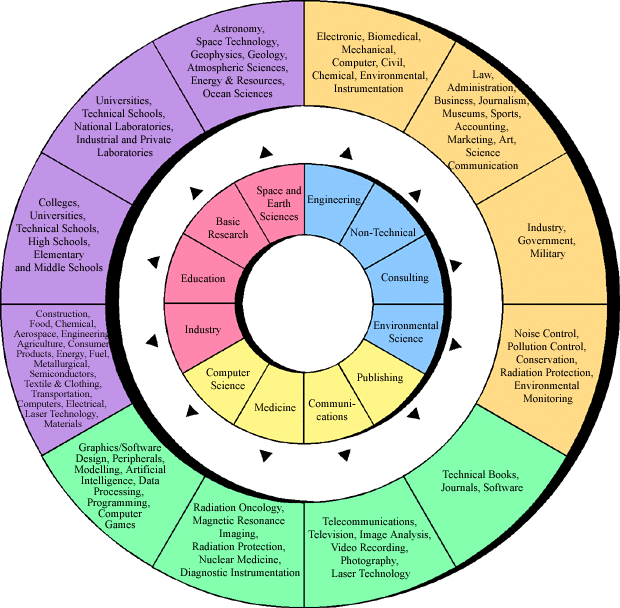University of Redlands Emergency Alert System
Alert Received: . For more information, visit: https://www.redlands.edu/alert/
University of Redlands
A physics bachelor's degree can lead to a wide variety of career paths. The problem-solving skills it hones are valued inside and outside of the sciences.
Approximately half of graduates go on to graduate school in fields like physics, astronomy, engineering, and medicine, while the other half get jobs in fields like software, engineering, education, or management. Students going straight into the job market are typically offered higher starting salaries than students with degrees in many other fields.
The American Institute of Physics has an online Grad School Shopper which allows you to search for programs based on a variety of criteria (specialty, degree, GRE requirements, location, etc.).
The American Institute of Physics' "Who's Hiring Physics Bachelors?" lists employers that have recently hired physics bachelors by state. You can read about some of the surprising careers of physics majors in Sigma Pi Sigma's "Spotlight on Hidden Physicists" (note that Joel Peavy is a Redlands alumni).
Many have gone on in physics and engineering, but a physics degree is far more versatile than that. Our graduates have gone on to places like Lawrence Livermore National Labs, Cisco, US Bank, Duke University, Northrop Grumman, the U.S. Navy, So. Cal. Edison, Charles Schwab, and Goldman Sachs, where they've had titles like research scientist, nuclear engineer, president, technical writer, financial analyst, teacher, chief medical physicist, and professor.
